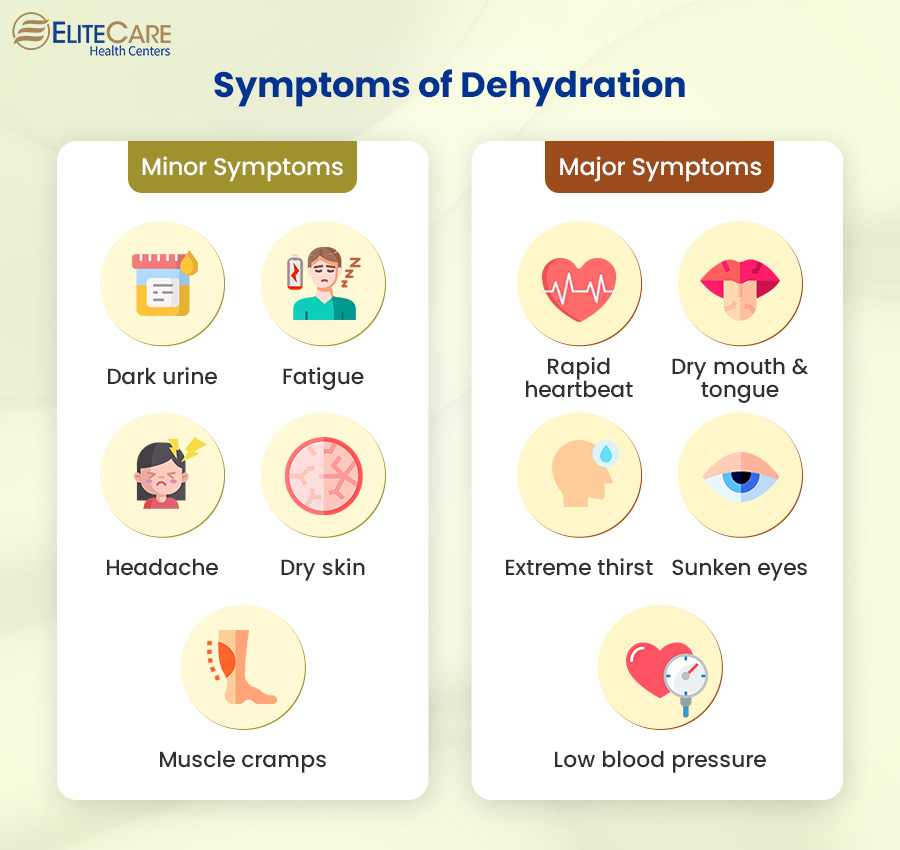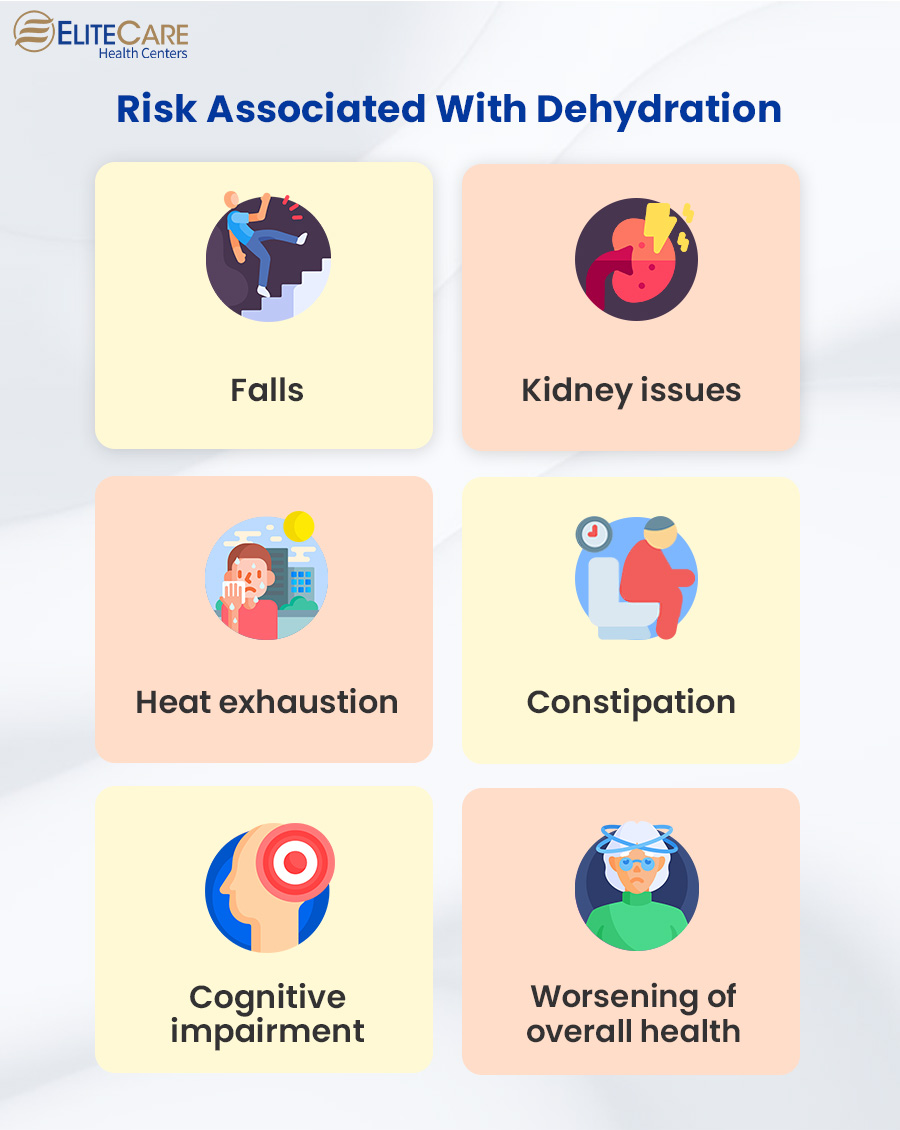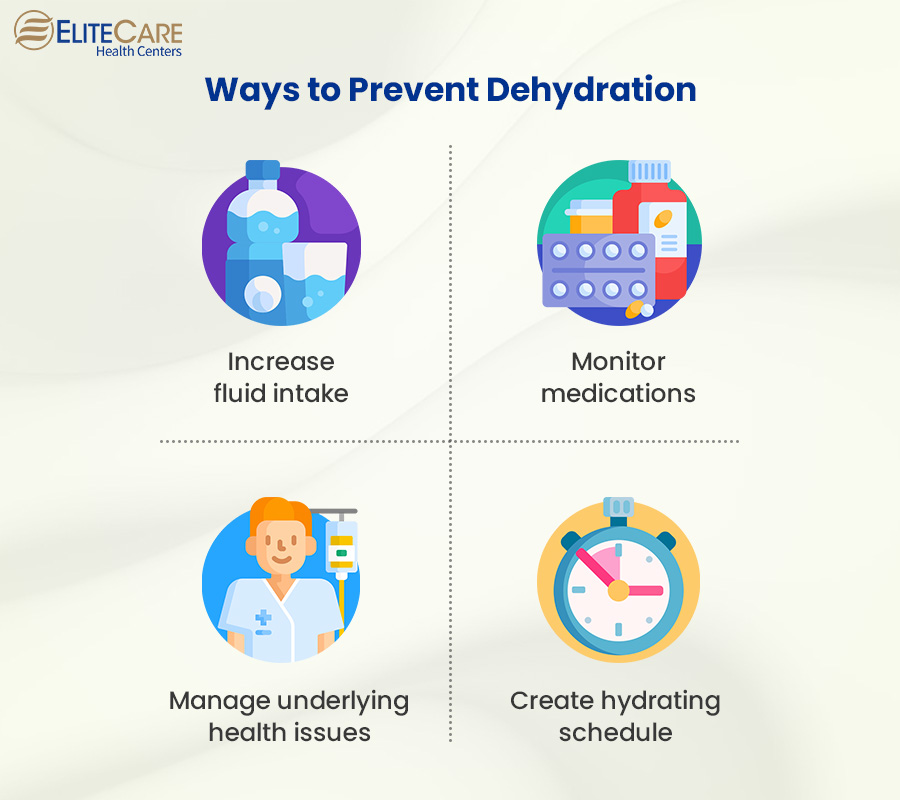
The human body is made up of approximately 60% water. It is essential for many bodily functions, including regulating body temperature, carrying nutrients and oxygen to cells, and removing waste from the body. But with age, the body tends to lose water content, and loses the ability to retain water. This is due to changes in body composition, hormonal changes, and decreased thirst sensation.
Dehydration happens when the body loses more fluids than it takes in, leading to an imbalance of water and electrolytes. This can be especially dangerous for seniors, as they are more susceptible to fluid imbalances that occur with aging.
The dangers of dehydration in seniors cannot be overlooked, as it can lead to serious health complications. Seniors and their caregivers must be aware of the signs of dehydration and take steps to prevent it. One can rehydrate the body by drinking fluids or using an oral rehydration solution, seeking medical attention if symptoms are severe or if there is a medical condition that requires monitoring.
Causes of Dehydration in Seniors
Some of the common factors that can contribute to dehydration in seniors include the following:
1. Natural changes in the body
With age, the body loses some ability to retain water. This means that older adults may not feel as thirsty as they should, even when their bodies need more fluids. Additionally, aging can cause a decrease in kidney function, which can affect the body’s ability to retain water.
2. Certain medications
Some medications, such as diuretics, blood pressure medications, and laxatives, can increase fluid loss. If the fluids are not replenished, it can lead to dehydration.
3. Health conditions
Diabetes, kidney disease, or heart failure can cause seniors to lose more fluid.
4. Inability to access fluids
Seniors with mobility issues or who are bedridden may have difficulty accessing fluids, contributing to dehydration.
5. Illness
Being sick with fever, vomiting, or diarrhea can also increase the risk of dehydration.
Primary care services and medical clinics can help seniors manage these challenges by regularly monitoring their medications and health conditions, providing guidance on fluid intake, and identifying and treating possible dehydration and its potential complications.
Symptoms

According to a report, 75% of Americans are chronically dehydrated, and 17%- 28% are older adults. Dehydration can be serious for seniors and cause serious consequences. One can help seniors identify and manage the symptoms of dehydration and prevent it. Here are some of the major and minor symptoms to be mindful of:
Minor symptoms
1. Dark urine
Dehydration can cause the urine to become dark and concentrated. In addition to dark color, urine may also have a strong odor and be accompanied by a burning sensation during urination.
2. Fatigue and weakness
When the body is dehydrated, it may not have enough fluid to carry out its normal functions, causing a lack of energy and overall weakness. In addition to these symptoms, seniors may experience headaches, dry mouth, or decreased urine output.
3. Headache
Dehydration can cause headaches. It affects the blood flow and oxygen delivery to the brain.
4. Dry skin
The skin becomes dry, flaky, and less elastic. Dehydration can also affect the skin’s elasticity and contribute to wrinkles and fine lines.
Read More: Skincare for Seniors – Must-do routines and tips
5. Muscle cramps
Less fluid in the body can affect the balance of minerals such as sodium, potassium, and magnesium, which are important for muscle function. This imbalance can cause muscle cramps, particularly in the legs and feet.
Major symptoms
1. Extreme thirst
This is one of the most common signs of dehydration, indicating that the body needs fluids. Extreme thirst should not be ignored in seniors, particularly during hot weather or when they are in a hot environment, as it can lead to serious consequences such as heat exhaustion or heat stroke.
2. Dry mouth and tongue
When dehydrated, the body conserves fluids by reducing saliva production. This can result in a dry, sticky feeling in the mouth and tongue. A dry mouth and tongue can make swallowing or speaking difficult and cause bad breath.
3. Rapid heartbeat
Also known as tachycardia. It is a potential symptom of dehydration in seniors. When the body is dehydrated, the blood volume decreases, which can cause the heart to work harder to pump blood throughout the body. This results in an increased heart rate or palpitations, which may manifest in the form of fluttering sensation in the chest.
4. Sunken eyes
Dehydration can cause the eyes to appear sunken or hollow, as the body lacks fluid to support normal eye function. In addition, it can also cause the skin around the eyes to become dry and flaky. Sunken eyes are often accompanied by other symptoms of dehydration, such as thirst, dry mouth, and fatigue.
5. Low blood pressure
Also known as hypotension, can be a symptom of dehydration in seniors. Symptoms can include a drop in blood pressure, dizziness, lightheadedness, or fainting. If accompanied by other symptoms, such as extreme thirst or dark urine, it may be a sign of severe dehydration and will need immediate medical attention.
Risks

Dehydration can pose significant risks to seniors, especially those with underlying health conditions or taking certain medications. Here are some of the potential dangers of dehydration in seniors:
1. Increased risk of falls
Dehydration can cause seniors to feel weak, dizzy, and unsteady on their feet, increasing the risk of falls and fractures.
2. Kidney problems
Less fluid in the body increases the risk of kidney stones, urinary tract infections, and other kidney-related problems.
3. Heat exhaustion and heat stroke
4. Cognitive impairment
Dehydration can affect cognitive function, leading to confusion, disorientation, and difficulty with memory and concentration.
5. Constipation
When the body is dehydrated, it can cause constipation and make bowel movements more difficult and uncomfortable.
6. Worsening of existing health conditions
Dehydration can exacerbate conditions such as diabetes, high blood pressure, and heart disease, making them more difficult to manage.
It’s important to take dehydration seriously and address it promptly to avoid these potential complications. Primary services at our medical clinic can help seniors identify any underlying health conditions that may contribute to dehydration and provide guidance on preventing and managing it.
Ways to Prevent Dehydration

Preventing dehydration in seniors is essential to their health and well-being. Here are some ways to help prevent dehydration:
1. Encourage fluid intake
Encourage seniors to drink fluids regularly, even if they don’t feel thirsty. Water, fruit juices, and milk are good options, and soups and broths can also provide hydration.
2. Monitor medications
Seniors taking medications that can increase fluid loss, such as diuretics, should be closely monitored to ensure they are drinking enough fluids. Seniors should talk to their primary care physician about any medications that may increase their risk of dehydration and take steps to manage their hydration accordingly.
3. Identify underlying health conditions
Older adults with diabetes or kidney disease should work with their primary care physician to manage their conditions and ensure proper hydration.
4. Provide easy access to fluids
It can get difficult accessing fluids, particularly if senior has mobility issues. Consider placing a water bottle or cup within reach or using a straw to make drinking easier.
5. Create a hydrating schedule
Seniors may need reminders to drink fluids regularly. Creating a hydration schedule can help ensure they get enough fluids throughout the day.
Take-Away
The dangers of dehydration are well-known, and they can be prevented. Staying hydrated is essential for seniors to maintain their health and well-being. Elite Care’s primary services can guide how much fluid seniors should drink, identify any underlying health conditions that may contribute to dehydration, and help manage it. Prevention is key, and staying hydrated is important to healthy aging.






